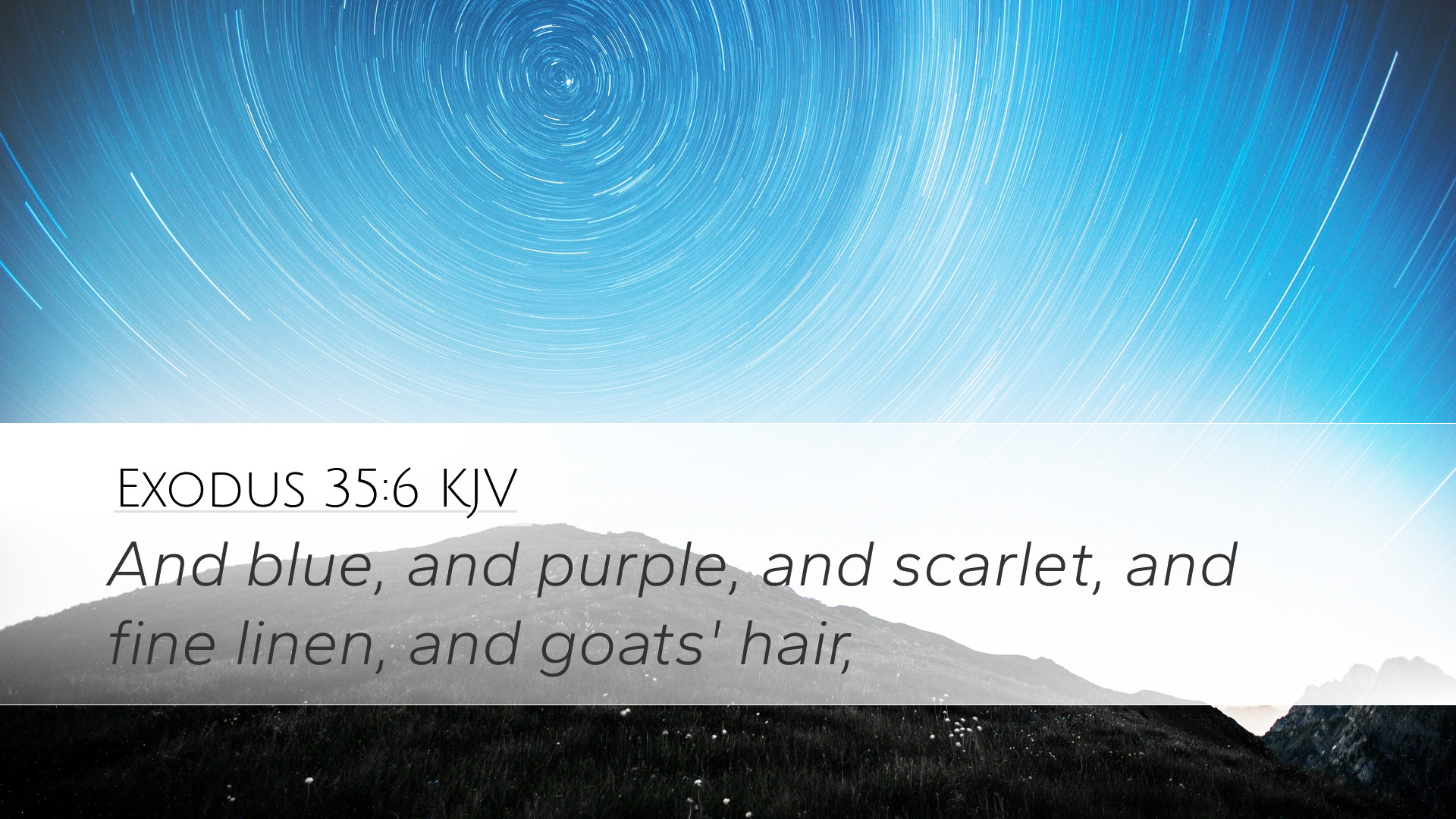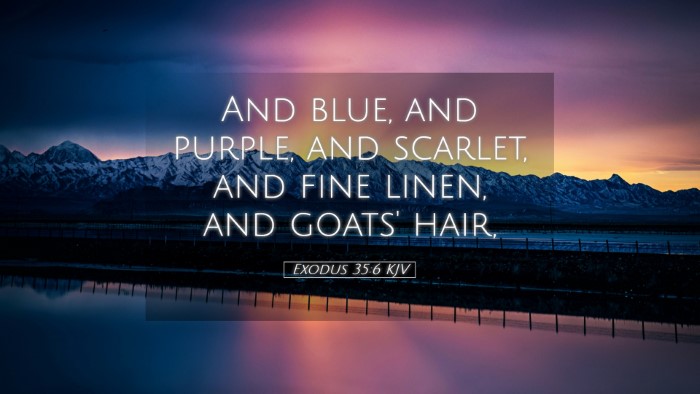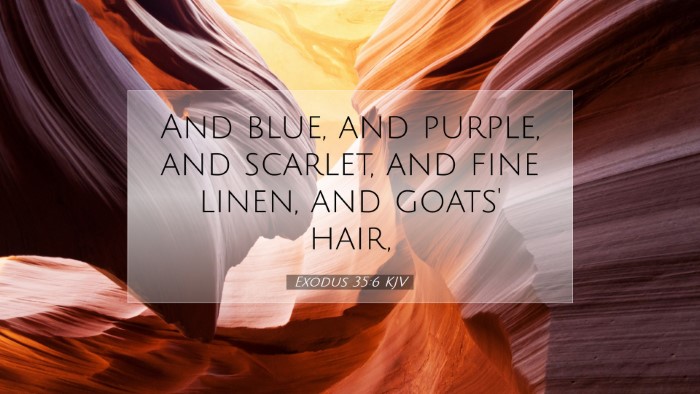Commentary on Exodus 35:6
Exodus 35:6 states: "And for the evening sacrifice, a lamb without blemish: to be offered every evening." This verse plays a critical role in understanding the significance of offerings in the Israelite tradition.
Overview of the Verse
The context of this verse is situated within the broader narrative of Exodus, where God gives Moses instructions for the construction of the tabernacle and details about offerings to be made by the Israelites. In Exodus 35, Moses calls upon the people to contribute to the sanctuary, emphasizing the importance of voluntary contributions for God's dwelling place.
The Importance of Offerings
As explored by Matthew Henry, offerings were not merely about the material gifts brought to God; they represented the people's ongoing relationship with the Creator (Henry). The specific mention of the evening sacrifice indicates a structured approach to worship, symbolizing both the end of the day and a moment for reflection and atonement.
Significance of the 'Lamb Without Blemish'
Albert Barnes provides insight into the symbolic importance of the unblemished lamb. The lamb represents purity and innocence, characteristics that are essential in the representation of sacrifices. This requirement underlines God’s holy nature and emphasizes that the offerings must meet divine standards.
Redemptive Themes
The requirement of a lamb without blemish foreshadows the ultimate sacrifice of Jesus Christ, also described as the Lamb of God who takes away the sins of the world (John 1:29). This connection is highlighted in the commentaries as a pivotal theological reflection for scholars and theologians.
The Role of the Community
In examining this text, Adam Clarke elaborates on the communal aspect of the sacrifices. Every Israelite had a role to play in bringing their offerings, which fostered a collective responsibility and devotion among the people. Contributions to the sanctuary were seen not merely as individual acts but as parts of a larger, unified worship experience.
Voluntary Contribution and Willingness
Clarke notes further that the emphasis on voluntary offerings underscores the concept of willingness in serving God. The act of giving was not meant to be coerced but rather rooted in love and gratitude, which aligns with the New Testament teachings on cheerful giving (2 Corinthians 9:7).
Theological Reflections
Understanding Exodus 35:6 leads us to deeper theological reflections concerning sacrifice, atonement, and worship. The passage requires modern readers—pastors, students, and theologians—to contemplate the nature of their offerings to God, exploring questions such as the quality of what they bring before the Lord and the state of their hearts in worship.
The Nature of God’s Requirements
Through the lens of these commentaries, we realize that God is not merely interested in the act of sacrifice, but rather in the hearts of those who make these sacrifices. As highlighted by Henry, the motivations behind the offerings serve as indicators of one’s spiritual condition.
Application for Today
As we reflect on Exodus 35:6, it invites a modern application. Pastors may consider how their congregations engage with the concept of offering—not solely in terms of financial gifts, but in lifestyle and service. Theologians could explore how the ancient practices inform current understandings of atonement and relationship with God.
Conclusion
Exodus 35:6 challenges each individual and community to approach the Lord with sincerity and purity of heart. The encompassing theme of voluntary giving reflects an ongoing covenant relationship with God, urging believers to recognize the significance of their contributions and the state of their worship.
As we take heed of the insights shared by Matthew Henry, Albert Barnes, and Adam Clarke, we are encouraged to examine our lives and our offerings, ensuring that they are reflective of our devotion to the Lord.


